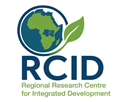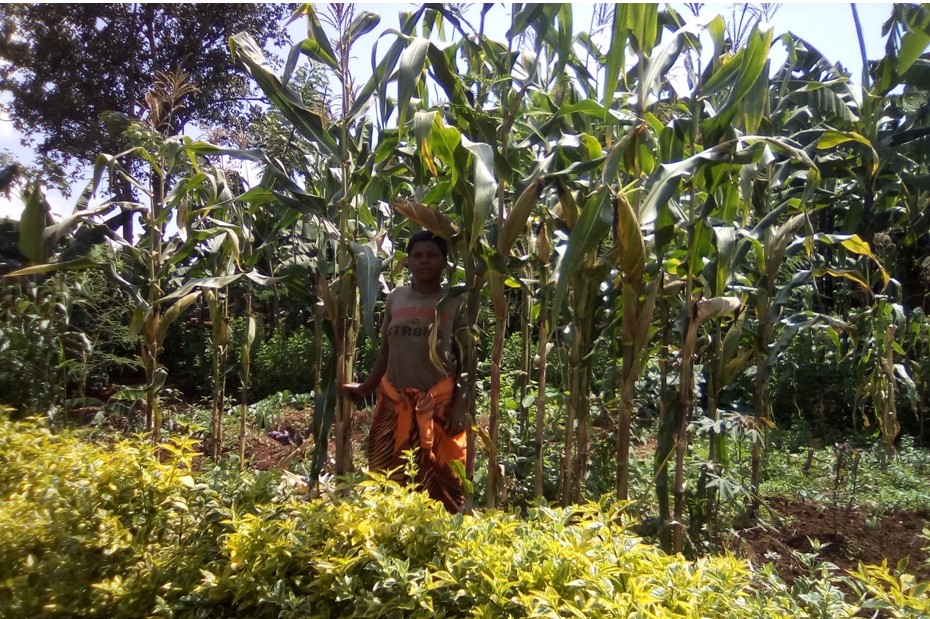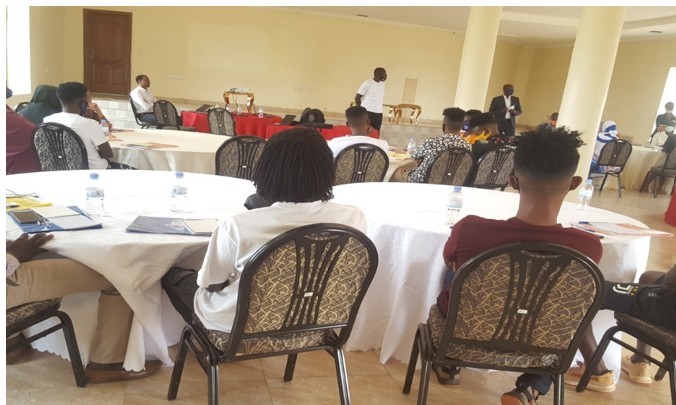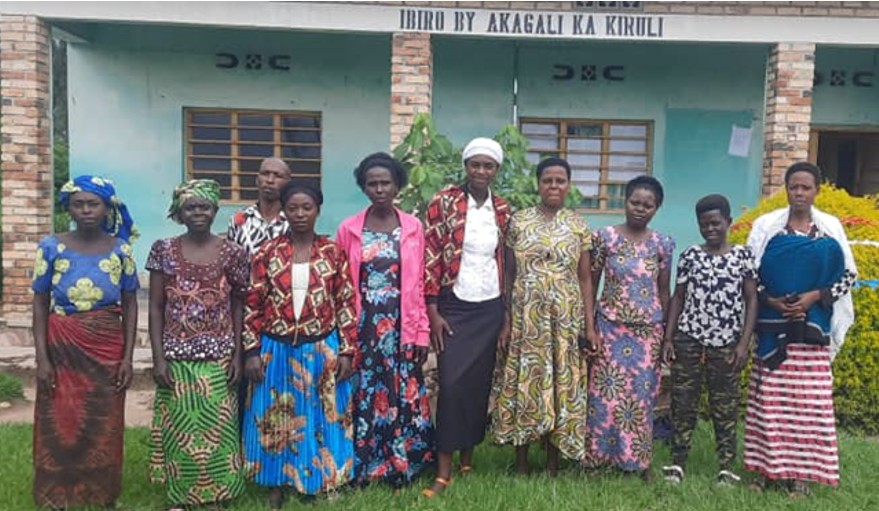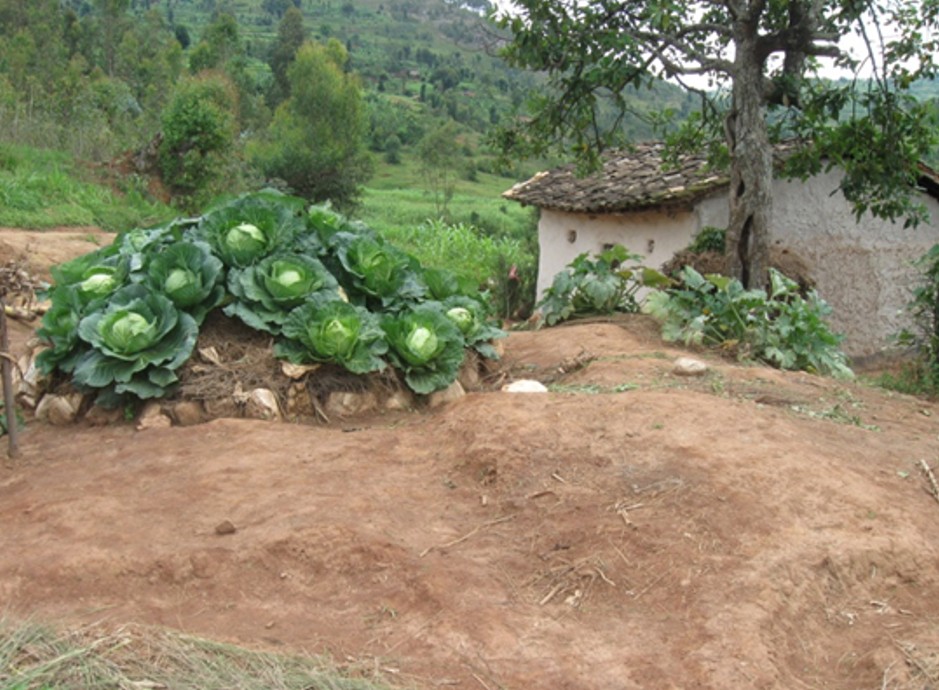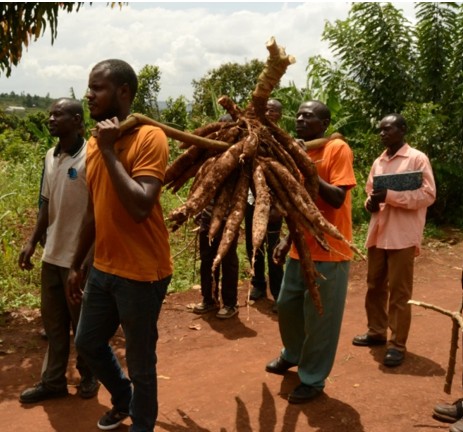RCID Food Systems Projects & Initiatives
Snapshots of our work and impact in Rwanda's food systems sector
6+
Major Projects
10,000+
Beneficiaries
Nationwide
Impact
Baseline study on KOICA Ultra Poor Graduation (UPG) Project for Women Headed Household
From August to November 2021, the Regional Research Centre for Integrated Development (RCID) conducted a baseline study for the KOICA Ultra Poor Graduation (UPG) Project targeting women-headed households. This initiative, known as “KOICA III,” is implemented by World Vision Rwanda under the Tunga Cluster in Gihango and Mushubati sectors of Rutsiro District, Western Province. The project aims to eradicate extreme poverty among female-headed households by strengthening food security, promoting social inclusion, and enhancing livelihood capacities.
RCID was contracted to carry out the baseline study to generate evidence-based data for effective project planning and impact measurement. The main objective of the baseline was to provide KOICA and World Vision with updated information on the project's early achievements, particularly in reducing malnutrition among children under five. In addition, the study assessed community knowledge, attitudes, and practices influencing service delivery quality and implementation effectiveness.
Findings from the evaluation highlighted both the successes and challenges of initial interventions, offering actionable insights to guide future programming. The results are intended to help decision-makers prioritize interventions that show promise and reconsider less effective approaches. The baseline established clear benchmarks for outcome and output indicators and laid the groundwork for measuring the intermediate results of the project, thus ensuring evidence-informed adjustments and enabling the scale up of high impact strategies.
Financial Literacy and Livelihood Empowerment for Evacuees from Libya at Gashora ETM Center
From July to September 2020, the Regional Research Centre for Integrated Development (RCID) partnered with World Vision Rwanda under the framework of the Graduation Model supported by the Local Administrative Entities Development Agency (LODA). The project was part of the broader effort to support evacuees from Libya hosted at the Gashora Emergency Transit Mechanism (ETM) Center in Bugesera District, Eastern Province of Rwanda.
RCID conducted intensive training sessions on financial management, aiming to empower evacuees with the knowledge and tools to improve their economic resilience and self-reliance. The training enabled participants to identify financial opportunities, manage income and expenses, and prepare to engage in small-scale entrepreneurial and self-employment activities. Participants gained practical skills in understanding key financial concepts and designing basic business tools such as balance sheets, family and business budgets, income statements, cash flow analyses, and cashbook records. The training also enhanced their awareness of both formal and informal financial services, equipping them to access financial institutions at local, national, and international levels.This intervention reflects RCID’s dedication to inclusive development, financial empowerment, and social reintegration for displaced and vulnerable populations.
Mid-Term Review of the CARE Rwanda Program Strategy 2022–2025
In partnership with CARE Rwanda, the Regional Research Centre for Integrated Development (RCID Ltd) conducted the Mid-Term Review (MTR) in 2024 of the CARE Rwanda Program Strategy 2022–2025, which focuses on improving the lives of women and girls by promoting gender equality, economic empowerment, financial inclusion, and climate resilience. This review aimed to assess the implementation progress, evaluate impact, and provide evidence-based recommendations for the remaining strategy period.
Using a mixed-methods approach, RCID gathered data through Key Informant Interviews (KIIs) with CARE staff and stakeholders, Focus Group Discussions (FGDs), mini case studies, and extensive document review. The review assessed implementation under two strategic pillars: Gender Justice and Right to Health and Women’s Economic and Climate Justice.
Key findings revealed measurable progress in advancing gender equality and economic opportunities for women, although challenges such as entrenched gender-based violence (GBV) and socio-cultural norms continue to limit the full realization of outcomes. The review emphasized the need for stronger GBV prevention and survivor support mechanisms, improved community engagement, and greater coordination among stakeholders.
RCID provided actionable recommendations to enhance program delivery and results, reinforcing our commitment to gender-responsive research and inclusive development. This project reflects RCID’s growing contribution to social protection, women's empowerment, and resilience-building initiatives in Rwanda.
Assessing the Alignment of National Food Systems and Policy Frameworks with the African Food Policy Agenda, Rwanda Case
The Regional Research Centre for Integrated Development (RCID), was engaged by ACORD Rwanda to conduct an assessment on Rwanda’s existing food system and policy frameworks and their alignment with the African Food Policy agenda. This assignment was undertaken as part of a broader initiative by the Alliance for Food Sovereignty in Africa (AFSA), in partnership with ACORD Rwanda, to promote sustainable, healthy, and equitable food systems that balance livelihoods with nature.
The review aimed to explore the fitness of current governance structures and policy frameworks to support a cohesive African Food Policy. It analyzed a wide range of policy domains, including agriculture, nutrition, trade, public health, environment, climate, education, and rural development. The findings underscored the fragmentation and lack of coherence across these policies, which has led to weak accountability and poor food system outcomes.
Conducted between January and June 2021, the assessment served as a foundation for national dialogue and stakeholder engagement. It offered key insights for building a common understanding of sustainable food systems and pathways for designing integrated, multi-sectoral food policies. The report was also instrumental in supporting policy and media advocacy efforts to push for a unified African Food Policy rooted in national realities.
Documenting Rwanda’s Traditional Culinary Heritage under the “My Food is African” Campaign
From December 2022 to January 2023, the Regional Research Centre for Integrated Development (RCID), conducted a documentary study on traditional culinary practices in Rwanda under the “Mobilizing for African Food Policy” (MAFP) project. This initiative was implemented by ACORD Rwanda in partnership with the Alliance for Food Sovereignty in Africa (AFSA), focusing on promoting the consumption of healthy and culturally appropriate foods supported by favourable food policies.
The study aimed to document culturally accepted and historically rooted foods prepared across different regions of Rwanda, contributing to the campaign “MY FOOD IS AFRICAN.” This campaign seeks to raise public awareness on the importance of consuming nutritious, locally sourced foods amidst growing concerns over food scandals, dumping, and the infiltration of biotech products such as GMOs.
RCID’s role was to generate a knowledge base that highlights Rwanda’s traditional culinary heritage. The findings of the study will inform a national sensitization campaign advocating for stronger food policies that protect Africa’s diverse and resilient food systems. Ultimately, the documentary serves as a tool to encourage citizens, producers, and policymakers to preserve and promote healthy African foods as a foundation for food sovereignty, nutrition, and cultural identity.
Evaluation of the Kitchen and School Garden Program in Rwanda
The Regional Research Centre for Integrated Development (RCID Ltd) was subcontracted by ICON-Institute Belgium to carry out the final evaluation of the Kitchen and School Garden Program in Rwanda. This evaluation was part of a larger initiative funded through two financing agreements signed between the European Union Delegation to Rwanda and the Government of Rwanda. These agreements included support for the decentralized agriculture program (RW/FED/2009/021-572) and Rwanda's National Multi-Sectoral Strategy to Eliminate Malnutrition (FED/2013/024-780), implemented between 2009 and 2017.
RCID conducted the evaluation during the period of 2018 to 2019, covering a sample of 2,815 households and 107 schools across 11 districts. The aim was to assess the impact of kitchen and school gardens on national policy and strategies designed to combat malnutrition, particularly at the household level. The evaluation also focused on the promotion of indigenous vegetables, which are both culturally acceptable and effective in addressing key nutrition gaps in Rwanda, such as vitamin A and iron deficiencies.
Further, the study explored low-cost and climate-resilient options suitable for drought-prone areas and dry seasons. These included the use of drought-resistant vegetable varieties, household greywater recycling techniques, and rainwater harvesting. The evaluation captured lessons learned and documented best practices from various implementing stakeholders, including NGOs, schools, and local community-based organizations.
The findings of this assignment have contributed significantly to informing future program design and implementation strategies for kitchen and school gardens in Rwanda. The evaluation reaffirmed RCID’s expertise in delivering high-quality research and impact assessments in the fields of nutrition, agriculture, and sustainable development.
Final performance evaluation of Kirehe food security project, Rwanda
The Regional Research Centre for Integrated Development (RCID Ltd), through its commitment to evidence-based programming and agricultural transformation, conducted the final performance evaluation of the Kirehe Food Security Project from February to May 2020. Implemented by the Association des Eglises Baptistes au Rwanda (AEBR) and funded by the Canadian Baptist Ministries (CBM) and the Canadian Foodgrains Bank (CFGB), this three-year initiative (2018–2020) targeted 1,329 vulnerable households representing approximately 6,645 individuals in 11 villages of Kirehe District, Eastern Province, Rwanda. The project focused on enhancing agricultural productivity and rural livelihoods through training in conservation agriculture, soil management, agroforestry, green manure and cover cropping, post-harvest handling, vegetable production, livestock and beekeeping, cooperative development, entrepreneurship, and income-generating activities. Lead farmers served as knowledge multipliers by training clusters of ten households each.
RCID’s evaluation analyzed the project’s relevance, efficiency, effectiveness, impact, and sustainability. Using a mixed-methods approach, the team reviewed baseline, mid-term, and endline data to assess improvements in food security, household income, and resilience among smallholder farmers who often struggle with limited resources such as land, quality inputs, and water access.
In addition to measuring results against key performance indicators, the evaluation documented lessons learned and best practices to inform future programming. The evaluation also helped strengthen AEBR’s internal learning and accountability systems and served as a platform to engage stakeholders in reflecting on strategic directions for rural development.

"RCID's food systems projects have improved nutrition, food security, and livelihoods for thousands of Rwandans. Their evidence-based approach and community engagement are making a real difference."
